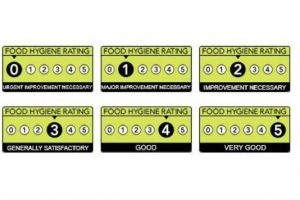I’m sorry I missed this story in Wales Online from Sept. 13, 2020, as I was doing my own recovering.
 Cathy Owen writes that Sharon Jeffreys dreads this time of year.
Cathy Owen writes that Sharon Jeffreys dreads this time of year.
As children return for the start of the school year, she relives what happened to her family 15 years ago over and over, and over again.
It was only two weeks into the start of the school year at Deri Primary in 2005 when her eldest son Chandler came home with stomach pains and the beginning of a nightmare for the young family.
Chandler had contracted E. coli O157 after eating contaminated food that had been supplied to the school by a local butcher.
But worse was to come after his younger brother Mason also became ill with the food poisoning.
The five-year-old had only just switched from taking packed lunches to having school dinners because he was so fond of chips and sausages.
“It was the worse decision I ever made,” says Sharon. “Mason loved his food. He was taking sausages and chips off the plates of children, so we decided to switch him to school dinners and he was really happy.”
Mason and eight-year-old Chandler were one of more than 150 schoolchildren and adults struck down in the south Wales outbreak. Thirty-one people were admitted to hospital, but Mason was the only one to die.
He had suffered high temperatures, stomach pains and had hallucinations and was admitted to Bristol children’s hospital, but died of kidney failure.
Today, his mum Sharon remembers every moment of those terrifying days.
“It will be 15 years on September 13 when Chandler first became ill,” she remembers. “When Mason started to be sick I tried to do everything I possibly could. Mason’s condition deteriorated considerably and he started to hallucinate saying he could see slugs and frogs.
“He went a yellow colour and started sweating like he’d just come out of a shower. Mason died two weeks later in unbearable pain.”
 Reflecting on the amount of time that has passed, Sharon says: “I just can’t believe how long it has been, it feels like such a long time since I last saw him.
Reflecting on the amount of time that has passed, Sharon says: “I just can’t believe how long it has been, it feels like such a long time since I last saw him.
“It is still very difficult to think about, but at this time of year I always relive that awful time. I always dread September coming along because it takes me back there.
“I will never get over it, but I have had to learn how to live with it, but little things can take me back there. Like I see a blade of grass, or hear something and it takes me back with a jolt.
“After Mason died it was really busy, there was the inquest and then the legal proceedings, so I didn’t actually face what had happened for a long time, and then it went quiet and it was like trying to scramble out of a big black hole.
“Mason would have been 21 in December. He should have been looking forward to celebrating that milestone in his life.
“Chandler is 23 now, but he is not the same person. He and Mason were so close, it has left a big hole in his life.
“My younger son is 16 and it has affected his life too. He can’t remember Mason because he wasn’t even one at the time, and that upsets him.”
Fifteen years on and Sharon and her family still feel that they have been denied justice.
Bridgend butcher William Tudor, 56, was jailed for breaching hygiene laws by allowing raw meat to come into contact with cooked ham and turkey.
A public inquest in 2010 heard how Tudor put cash before hygiene for years and may have caused other food poisoning outbreaks.
Butcher William Tudor was jailed for 12 months
It was claimed he bought cheap frozen New Zealand mutton and passed it off as prime Welsh lamb and staff who brought him rotten meat unfit for consumption were told to “mince it up” and use it in faggots.
 Sharon went on to immerse herself in other food safety issues, including a push to make restaurant inspection disclosure – scores on doors – mandatory in Wales. Voluntary disclosure misses the point and if large cities like Toronto, New York and Los Angeles can figure out how to make it mandatory so can Wales.
Sharon went on to immerse herself in other food safety issues, including a push to make restaurant inspection disclosure – scores on doors – mandatory in Wales. Voluntary disclosure misses the point and if large cities like Toronto, New York and Los Angeles can figure out how to make it mandatory so can Wales.
Disclosure became mandatory in Wales and Northern Ireland in Nov. 2013, thanks in part – or largely — to Sharon’s efforts.
The rest of the UK, and Australia, wallows in a voluntary system: lousy score, don’t post it.
“The food hygiene rating scheme is very important and it is good that more people are more aware after what happened,” says Sharon.
“It is a bit concerning to hear that Covid might have an impact on some council environmental services, but we need to make sure there are more officers carrying out inspections and making sure that best practice is being followed.
“I have heard back from people that they have used our story as part of their training for cooks and kitchen staff.
“Before Mason’s death I had never really heard of E. coli. I had heard the name, but didn’t know much about it.
“Now, I think people are definitely more aware. That is good to know, good to know that people haven’t forgotten, even after all these years.”








